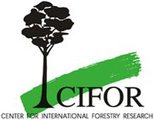In order to support REDD+ negotiations under the UN Framework Convention on Climate Change (UNFCCC), the Center for International Forestry Research (CIFOR) has released an assessment of REDD+ non-carbon benefits, and joint mitigation and adaption activities.
 May 2014: In order to support REDD+ negotiations under the UN Framework Convention on Climate Change (UNFCCC), the Center for International Forestry Research (CIFOR) has released an assessment of REDD+ non-carbon benefits, and joint mitigation and adaption activities.
May 2014: In order to support REDD+ negotiations under the UN Framework Convention on Climate Change (UNFCCC), the Center for International Forestry Research (CIFOR) has released an assessment of REDD+ non-carbon benefits, and joint mitigation and adaption activities.
The report, included in ‘info brief No.71 May 2014,’ evaluates literature and submissions to the UNFCCC Subsidiary Body for Scientific and Technical Advice (SBSTA) related to the multiple benefits that can be achieved through REDD+, beyond carbon sequestration and storage. The report also examines how REDD+ can contribute to climate change adaptation as well as climate change mitigation measures.
The report identifies a number of issues that Parties may wish to consider in SBSTA negotiations, including: the need to identify joint mitigation and adaptation strategies in the forest sector; the close link between REDD+ safeguards and multiple benefits; the importance of non-carbon benefits to the success of REDD+; the need to determine non-carbon benefits at the national level; and consideration of the relationship indigenous peoples and local communities have with forests.
The report notes, however, that determining non-carbon benefits at the national level rather than at the level of the UNFCCC is contentious. The publication also highlights the lack of information on and experience with joint mitigation – adaptation activities.
CIFOR is a part of the CGIAR consortium. [CIFOR Press Release] [Publication: No.71 May 2014: Synergies Across a REDD+ Landscape – Non-carbon benefits, joint mitigation and adaptation, and an analysis of submissions to the SBSTA]